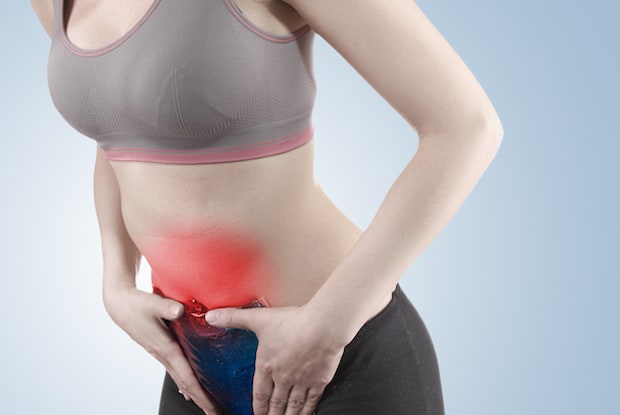Table of Contents
II. Inability to Become Pregnant
III. Skipped or Irregular Periods
IV. Changes to Menstrual Periods
Overview
Infertility is a common concern for women of childbearing age. Infertility is the inability to become pregnant after a year of frequent unprotected sexual intercourse. For women who are over 35, infertility is defined as six months of frequent unprotected intercourse without conceiving. Impaired fecundity is a similar concern for women. Impaired fecundity is the difficulty in becoming pregnant or carrying a pregnancy to term.
Female infertility may be caused by several conditions or factors. These include ovulation disorders such as polycystic ovary syndrome (PCOS) or premature ovarian failure. Female infertility may also be caused by cervical and uterine conditions damaged fallopian tubes, endometriosis, or other conditions. Clomid is a medication typically prescribed to help stimulate ovulation.

Some of these conditions that cause infertility may have symptoms specific to that condition. However, there are some symptoms of female infertility that are common across many conditions that lead to infertility. Any of these symptoms may be a sign of infertility. However, they may also be symptoms of other conditions and it is important to have any of these symptoms checked by a doctor.
Keep reading to learn more about the symptoms of infertility and conditions that can cause infertility.
Inability to Become Pregnant
The most obvious sign of female infertility is not becoming pregnant after trying for a certain amount of time. This is often the symptom that prompts a woman to see her doctor for a diagnosis. Infertility is defined as difficulties in becoming pregnant after frequent unprotected sexual intercourse for six to twelve months, depending on the woman’s age. However, many women may seek help or advice from their doctor before this length of time.
Skipped or Irregular Periods
Skipping menstrual periods or frequent irregular periods is another common sign of infertility. If a woman has recently been taking birth control, it may take a few months before periods are regulated again.
Women may occasionally miss their period due to factors including stress, illness, weight changes, and changes to their schedules or body clocks. [1] However, regularly missing a menstrual period can be a sign of an ovulation disorder that could cause infertility. Medications such as Clomid can help to stimulate ovulation.
During the first few years of a woman’s menstrual periods, it is common for periods to be irregular. However, once a woman finishes adolescence, menstrual cycles should be regular. Irregular periods can be a symptom of an ovulation disorder such as polycystic ovarian syndrome (PCOS), premature ovarian failure, or hyperprolactinemia and should be checked by a doctor. [2]

Changes to Menstrual Periods
Irregular or missed periods can be a common symptom of female infertility. However, even if the menstrual period is regularly occurring, there may still be visible signs of possible infertility. A typical menstrual cycle lasts for 28 days. A menstrual cycle that is longer than 35 days or shorter than 21 days may mean that a woman is not ovulating. Menstrual bleeding that lasts for less than three days or more than seven days can also be a sign that there is a problem. [3]
Menstrual blood is typically bright red at the start of the menstrual period and may get gradually darker as the period progresses. Pale or dark menstrual blood at the start of a period can be a sign that there is a problem. [4]
Many women experience painful cramps during their menstrual periods. However, pain that is severe enough to interfere with daily life may be a sign of a problem such as endometriosis.
Unusual spotting or bleeding between menstrual cycles can be a sign of a uterine polyp or fibroid. It may also be a sign of a more serious condition such as cancer. If this occurs regularly, it should be checked by a doctor.
Very light or heavy menstrual bleeding can also be a cause for concern. An unusually heavy period is one that requires more than one pad or tampon an hour for several hours or when blood clots are larger than the size of a quarter. Significant changes to the heaviness of bleeding may also be a sign of a problem. Heavy periods can be caused by uterine fibroids, bleeding disorders, or other conditions. [5]

Painful Sexual Intercourse
Painful sexual intercourse is known as dyspareunia and can be another symptom of female infertility. Although painful sexual intercourse does not cause infertility, it can be a sign of health problems that can affect fertility, including endometriosis, uterine fibroids, and infections. [4]
Hormone Changes
Changes in hormone levels may also cause female infertility. Common ovulation disorders, including hypothalamic amenorrhea and hyperprolactinemia, are caused by problems with small areas of the brain. Unlike many other symptoms of infertility, hormonal changes may affect any part of the body.
Hormonal changes do not necessarily indicate a problem with fertility. However, it may be an underlying cause. Common symptoms of hormone fluctuations in women include severe acne, facial hair, nipple discharge, unexplained weight gain, or thinning head hair. [4]
The content in this article is intended for informational purposes only. This website does not provide medical advice. In all circumstances, you should always seek the advice of your physician and/or other qualified health professionals(s) for drug, medical condition, or treatment advice. The content provided on this website is not a substitute for professional medical advice, diagnosis or treatment.
